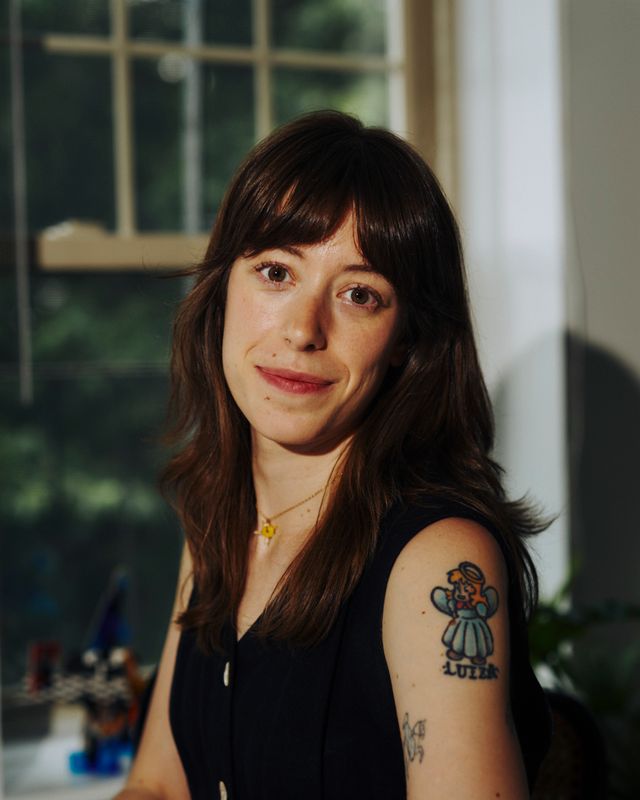
The Most Valuable Thing I Learned Studying Philosophy
As an undergraduate (and an English major), I never understood what the philosophy students were learning. I remember asking an acquaintance what he wrote about in a final. Did you like, produce a new theory of existence? He told me that no, he wrote about the work of philosophers. I think his paper might have been about Kant. To determine if Kant was right about things? I asked. Um, kind of. The conversation trailed off, with philosophy still more opaque than ever for me. It seemed vaguely like literature, but with a greater claim to truth.
“I never understood what the philosophy students were learning.”
Almost ten years later, I was a philosophy student in graduate school. I still had no orientation to philosophy as a discipline, or very little at least. I decided on the department because I wanted to study psychoanalysis and this school offered a concentration on the subject. All this was true, but it was also a convenient excuse. There are other ways to study psychoanalysis (on one’s own, for example), and other places to do it (psychoanalytically-oriented social work and psychology departments). But secretly, I wanted to figure something out about philosophy for myself. I still didn’t know what all of those papers were about.
In preparation for applying to grad school, I started auditing classes. I took undergraduate basics like “Introduction to Modern Philosophy” and “Hegel and Schelling.” (Okay, the latter might not have been so basic.) I sat in classes, listening to lectures and making notes, and yet I still felt confused. Where was this all headed? I was waiting for someone to tally up the score. Descartes was right, Hume was wrong. Leibniz was right about this one thing, and here’s why. Instead, a constant stream of ideas was presented. Complex and brilliant, one after the other. Finding my footing was more difficult than I imagined, and I started to get the sense that it wasn’t the point.
“Finding my footing was more difficult than I imagined, and I started to get the sense that it wasn’t the point.”
In school, I had trouble taking on the moniker of “philosophy student.” At parties, when people asked what I did (I have more than a few gray hairs, not usually associated with being a student), I would respond, Oh, I’m in school…grad school…a Master’s….psychoanalytic theory…in a philosophy department, taking ages to get to the last bit. I never quite said that I was studying philosophy — and in avoiding so, I never completely committed myself to the project. Instead, I comforted myself with small advancements. After all, I now knew the difference between continental and analytic philosophy. And I knew the difference between epistemology and ontology, too. But, was that really philosophical knowledge? It didn’t feel like it.
One evening, I attended a guest lecture on Nietzsche and Foucault. This professor’s paper hinged on Nietzsche’s conception of truth. There was lively discussion afterward. Was truth something that existed and could be discovered, or something else? As Nietzsche puts it, truth must be “created.” It’s a process, and it is always being determined. A friend in the department whose opinion I held in especially high regard mentioned that this was one of the philosophical conceptions most important to him. Looking back now, this moment shook the foundations of my assumptions about philosophy.
“Was truth something that existed and could be discovered, or something else?”
When I first sought out philosophy, I was looking for a pre-established truth. One that could be transmitted to me without any loss — the pure learning of new facts. Without fully realizing it, I was looking for an answer about the nature of things. An answer upon which I could ground all of my future thoughts and opinions, discarding any that didn’t pass the test. I expected to learn certain things about the world, about history, and how everything fit together. Instead, I was asked to think. To run all of this material through for myself, and see what came out. Not to come to some stopping point in thought that was truth or fact, but to take part in the continued process of determining it. So that was the point of a philosophy paper.
Certain philosophers will change you, sharpen and refine your senses, and challenge your assumptions — but in the end, the idea isn’t to adhere to them. As I recount my experience, I realize that philosophy began in dialogue. If you were lucky enough to study philosophy in high school, you’ll remember that ancient philosophy is staged as a conversation. I somehow skipped that in my introduction to field. I started reading later works, each with a singular voice. An author and their authority. When I first approached these texts, I endowed them with this power. And I hoped to find the one who could explain it all.
“I expected to learn certain things about the world, about history, and how everything fit together. Instead, I was asked to think.”
Now I know that one philosophy or school of thought cannot hold all the answers. Nor can we ever expect to find stable answers for ourselves about the big questions (or the smaller ones). We’re always in the process of working on truth, in dialogue with others. It doesn’t happen without us there.
I figured after studying philosophy, I’d know more. Instead, I feel more at peace with the mysteries of life. This has helped me to think in the face of problems, rather than to seek answers. It’s allowed me to be more creative, too, knowing that there isn’t an answer already set in stone. When philosophy is about keeping ideas in circulation rather than focusing on dead authors, it can make you feel more alive.
Ashley D’Arcy is Senior Editor at The Good Trade. She is also a psychoanalyst-in-training and holds a Master’s in philosophy from the New School for Social Research. She lives in Brooklyn with her wife and their Miniature Australian Shepherd, Rocky.




